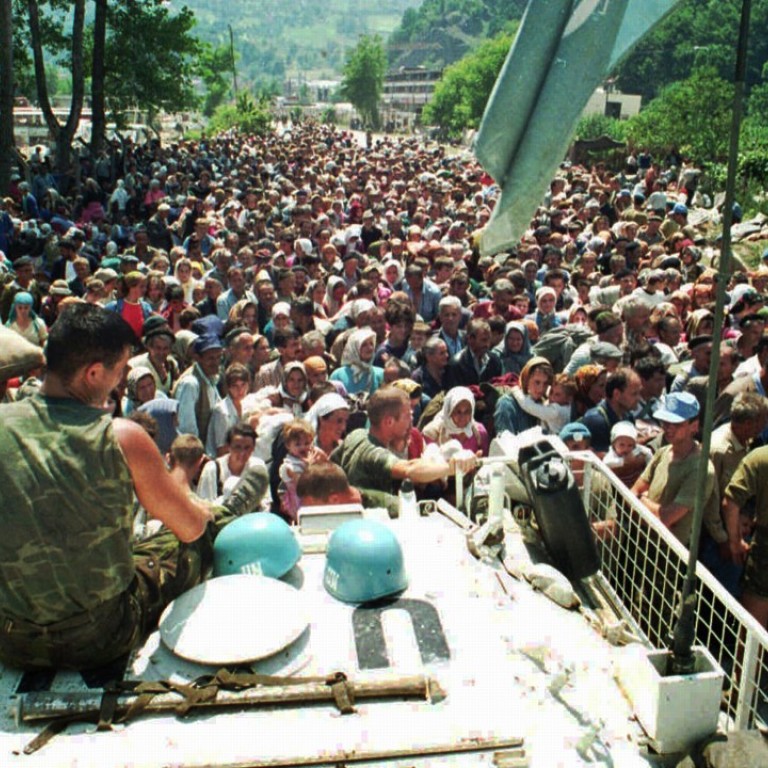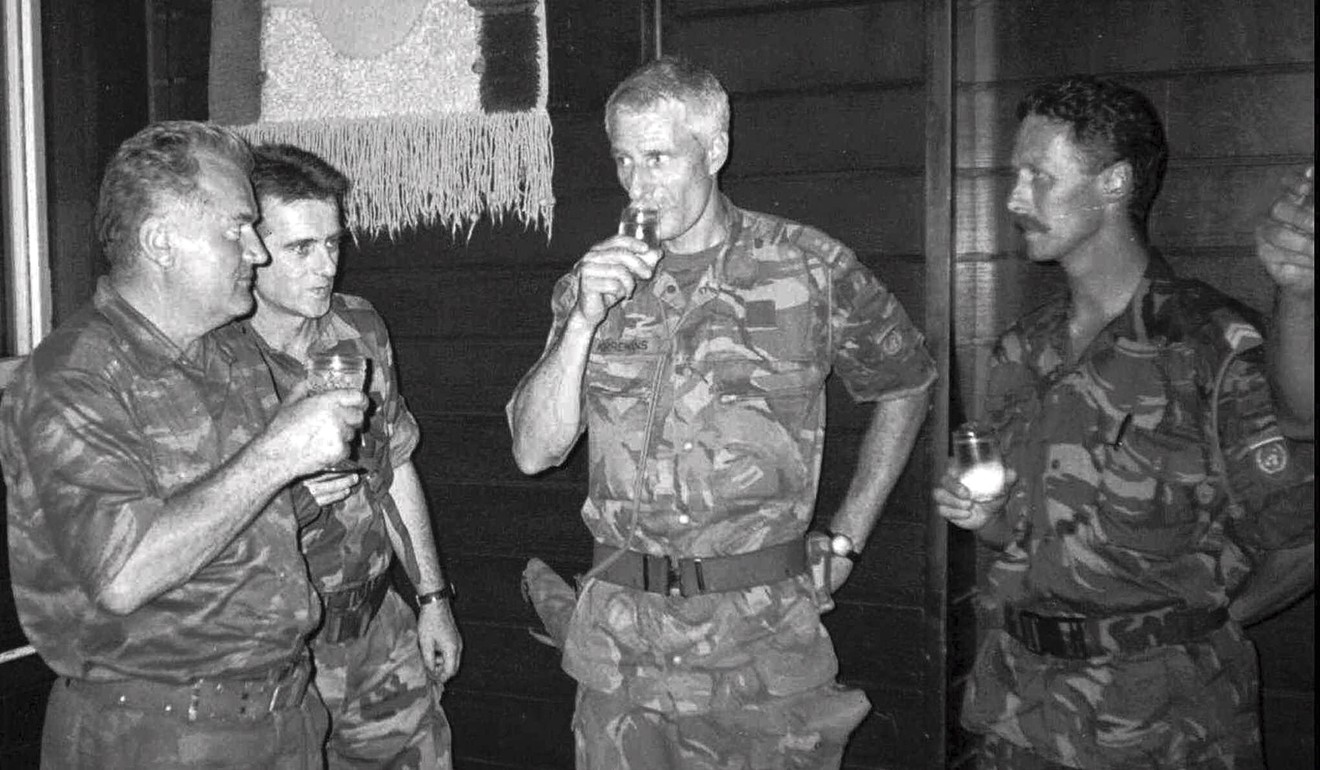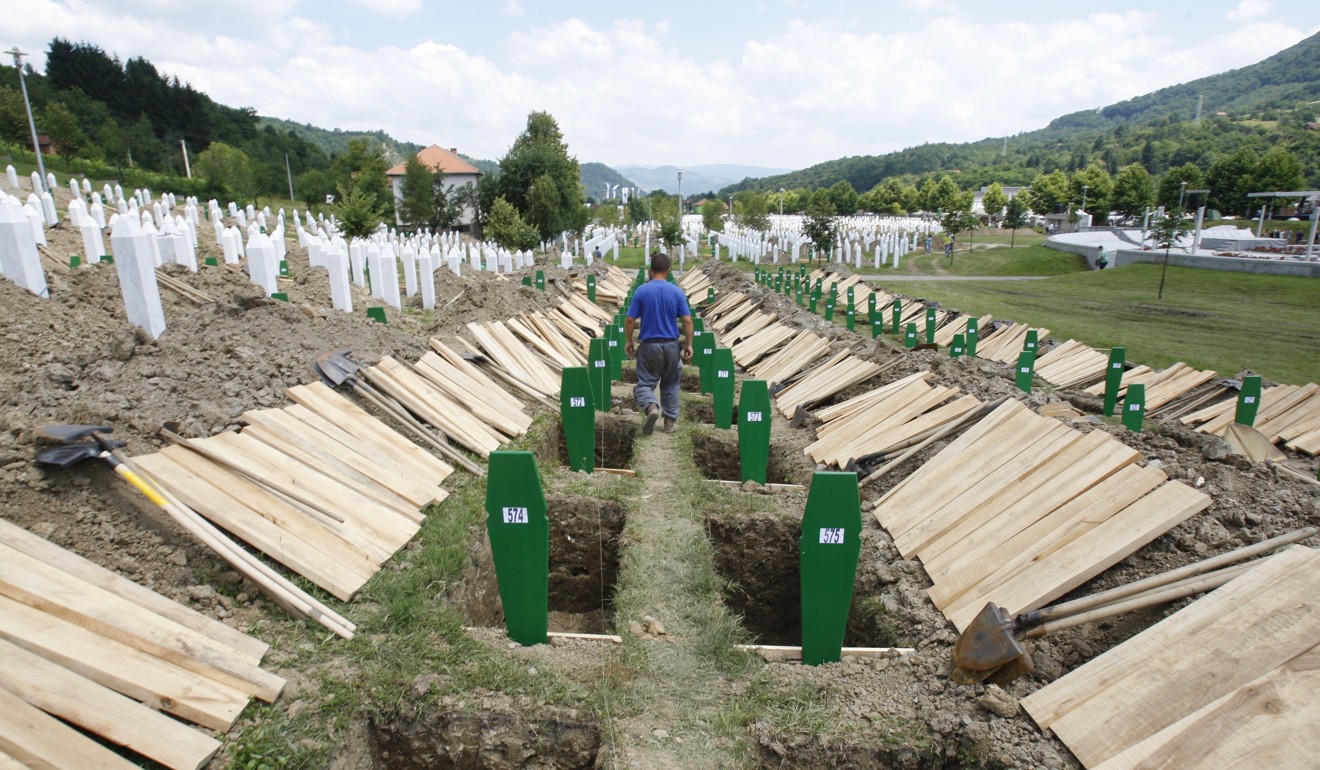
Srebrenica massacre: Dutch soldiers let 300 Muslims die, court rules
Dutch soldiers acting as UN peacekeepers were partly liable for the deaths of about 300 Muslim men massacred near Srebrenica in Bosnia and Herzegovina during the Yugoslavian civil war, an appeals court in The Hague has ruled.
The ruling upholds a decision three years ago that the Dutch forces should have known that the men seeking refuge at their base would be murdered by Bosnian Serb troops if they were turned away.
Many of the victims had fled to Srebrenica’s UN-designated safe zone only to find themselves outnumbered and the lightly-armed Dutch troops unable to defend them. It was then that they headed to the nearby Dutch base, only to be subsequently handed over to their murderers.

The judge added that the soldiers had facilitated the separation of the men and the boys among the refugees.
The ruling came as a lawyer for 200 Dutch army veterans said his clients planned to sue the state for compensation for the trauma they suffered after being sent on “an impossible mission” in Srebrenica.
Michael Ruperti said the men are campaigning for a “symbolic” 22,000 euros (US$25,000) each – or 1,000 euros or every year since the massacre took place, bringing the value of the total suit to 4.5million euros.
The 200 soldiers were serving in the Dutch battalion Dutchbat III protecting the Muslim enclave when it was over-run by Bosnian Serbs under the command of former general Ratko Mladic.
About 8,000 Muslim men and boys in total were killed by Bosnian Serb troops in Srebrenica in July 1995, in what is believed to be the worst mass killing on European soil since the second world war.

The amount of damages will be determined in a separate procedure unless the victims and the state can reach a settlement.
The Dutch government resigned in 2002 after acknowledging its failure to protect the refugees. The Netherlands maintains that the Bosnian Serbs, not Dutch troops, bear responsibility for the killings.
Mladic is on trial for genocide with a verdict expected later this year. The court rejected an appeal from relatives of other Srebrenica victims, who argued the Dutch government should be held responsible for the protection of thousands more Muslims who had gathered outside the base.
Munira Subasic, of the Mothers of Srebrenica group, said: “This is a great injustice. The Dutch state should take its responsibility for our victims because they could have kept them all safe on the Dutchbat [Dutch battalions’] compound.”

